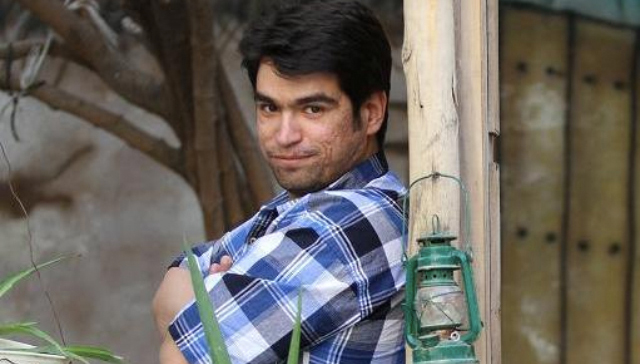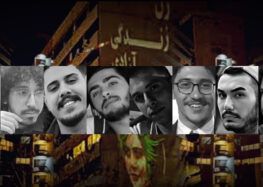Reformist MP Calls for Judicial Investigation Into Imprisoned Journalist’s Worsening Health

A member of the Iranian Parliament has called on the judiciary to investigate reports about imprisoned reformist journalist Ehsan Mazandarani’s deteriorating health after his wife publicly stated that he has been denied medical treatment despite being unable to keep food down.
On August 23, 2017, Mazandarani’s wife, Maliheh Hosseini, tweeted that he had been “transferred to Evin Prison’s clinic in a semi-conscious state with his pulse below eight, sugar level below 40 and his heart rate at 130.”
“However, Evin’s doctor has declared he will not treat Ehsan Mazandarani until he falls into a coma,” she added.
“Ehsan Mazandarani’s stomach has not been able to hold anything but water for six days,” she tweeted on August 22. “The prosecutor will not even grant him medical furlough.”
Political prisoners in Iran are singled out for harsh treatment, which often includes denial of medical care.
Hosseini also stated that Tehran Prosecutor Abbas Jafari Dowlatabadi and Deputy Judiciary Chief Gholamhossein Mohseni Ejei had not responded to her requests to look into her husband’s condition.
“Ehsan has been seriously ill for about a week. He is not on a hunger strike, but he can’t ingest anything but water and he could slip into a coma at any moment,” wrote Hosseini on Instagram on August 23. “Maybe this is what the security establishment wants. Whatever happens to him will be a stain on Dowlatabadi and Ejei.”
Reformist MP Speaks Out
In a letter sent to Judiciary Chief Sadegh Larijani on August 24, 2017, reformist MP Elias Hazrati wrote: “Only about a month remains to the completion of his [Mazandarani’s] sentence, but his venerable wife’s description of his physical condition is truly regrettable.”
“Given the good will I have seen in your Excellency’s character, please read the attached letter from Mrs. Mazandarani, and order a legal investigation,” he added.
Hazrati described Mazandarani’s condition as a “negative point” for the judicial system, adding: “I wish there was an authority who would investigate these simple requests so that legislators would not have to.”
Mazandarani, 35, was violently returned to Evin Prison on March 11, 2017, by agents of the Islamic Revolutionary Guard Corps (IRGC) less than a month after he was released. After pointing out that he had been released according to official court documents, a clerk told him there had been a mistake.
“Ehsan twice corresponded with Ms. Fattaneh Fattahi, the court’s clerk, and said that the ruling was different than what was told to him before,” Hosseini told CHRI in March 2017. “She replied that the ruling was what it was.”
Mazandarani, the former editor-in-chief of the reformist newspaper, Farhikhtegan, had already served more than 13 months for peacefully engaging in his profession before being returned to the prison. He was officially convicted of “assembly and collusion against national security” and “propaganda against the state.”
Since the election of the current Iranian Parliament in February 2016, legislators have been more vocal than ever in asking questions about detained journalists and civil rights activists targeted by the security establishment for engaging in peaceful dissent.
In October 2017, fifteen MPs called on the judiciary to reverse the 10-year prison sentence of prominent human rights defender Narges Mohammadi, marking the first time since Iran’s 1979 revolution that lawmakers publicly defended a person convicted of anti-state activities.
“We plead with you to show Islamic mercy and nullify the sentence and order a new trial,” said the MPs in a letter to Judiciary Chief Ayatollah Sadegh Larijani. “Your Excellency is aware that issuing such sentences against critics would only raise the cost of constructive criticism, isolate critics and drive society into stagnation.”
Journalists currently imprisoned in Iran include Hengameh Shahidi, Alieh Matlabzadeh, Sasan Aghaei, Yaghma Fashkhami and Afarin Chitsaz.






